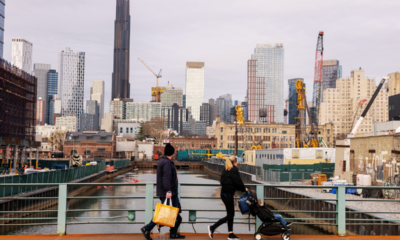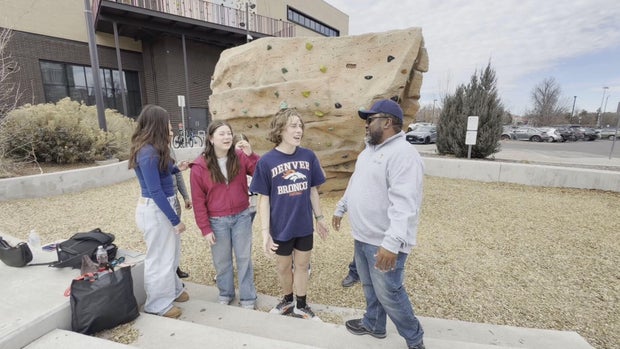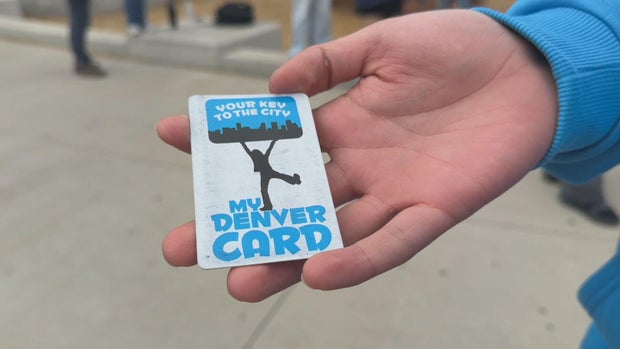Denver, CO
Opinion: A random assault in downtown Denver has me rethinking our approach to homelessness

I heard ranting. The typical homeless-man ranting that we’ve all become accustomed to. I wasn’t scared. I’m used to walking downtown in cities – New York, San Francisco, New Orleans, and Chicago. Why should visiting Denver be any more dangerous?
It was about 6 p.m. on a Wednesday last month when my wife, our friends, and I were walking the five blocks on 15th Street from our hotel, Embassy Suites, to a restaurant on Larimer Square. There’s a little pocket park along the way at Arapahoe Street, and it’s apparently become a hangout for unhoused people.
He was yelling something about someone killing his family. I glanced at him – no dirty look or anything, just a curious glance. He was crossing 15th toward our side of the street. I turned back and continued walking. I know that 99% of unhoused people are harmless to strangers. I guess I wasn’t prepared for the other 1%.
I felt something hit the back of my neck, and it knocked me to the ground. I heard my glasses rattle across the pavement. I’d somehow caught myself a bit with my elbows and arms, so my head didn’t hit the concrete. Splayed out on the sidewalk, I heard my wife and our friends yelling, then asking if I was OK, and then they were helping me up. I got to my knees, then my hands, then I was sitting on a bench. I was dazed, and I couldn’t respond. Was I OK? I had no idea.
It turned out – according to surveillance video and witnesses – the guy had stormed up behind me and punched me full-force on the back of my neck. He then walked back across the street and stood watching and yelling at us. We were in front of a bank, and the security guards ran out to help.
EMTs arrived and checked me for a concussion. I was OK. Two scrapes on one arm and one on the other where I hit the ground, and I couldn’t move my neck to the left. Denver Police arrived and spoke with me, then they went to speak with him, and that’s when he decided to run. The police caught him, we did an ID, and he went to jail. I went to our hotel room.
And that bothered me.
The officer asked me, three times I think, “Do you want to press charges?”
Do I want to press charges? What I want is for no one else to get hurt. I’m a 55-year-old guy in good health. What if I’d been 75? What if I’d been a child? What if I hadn’t caught myself and had hit my head on the concrete? What if my attacker had carried a knife?
Do I want to press charges? What I want is for the guy to get help with the addiction or mental health crisis that he’s having. What I want is for him not to be living on the streets. What I want is for someone to fix this.
Because I’m angry.
I’m not angry at the guy who attacked me. (Not anymore, now that I’ve calmed down a bit.)
I’m angry at you. I’m angry at me. I’m angry that we have collectively created and sanctioned a society that is unsafe. Unsafe. If I as a visitor to Denver can be attacked in broad daylight on a nice street, unprovoked, by an unhoused man, then we are unsafe. We have failed; I have failed you, and you have failed me. And we have all failed that man whose psychosis or drug-induced delusion or whatever demons he’s dealing with led him to attack a stranger.
I’m no expert on homelessness, but it’s nothing new to me. Formally, I’ve worked in soup kitchens and volunteered with a Room in The Inn shelter program. Informally, I’ve shared meals with homeless folks and taken people to motel rooms in the middle of winter.
But the last several years, I’ve been surprised to see how bad the situation has become, and it’s become increasingly difficult for me to call any of this OK: Entire sections of public parks in Queens abandoned to become urine-soaked campgrounds. Blocks of roadside RVs becoming permanent lodging along the railroad tracks outside San Francisco. And now this, in Denver of all places.
I have sympathy for those on both sides of this issue as cities grapple over rules that would ban sleeping on the streets. But after what just happened, I have to agree: We need to ban living on the streets. We need a ban, and, in tandem, we need the resources to fix the situation that we’ve created. We need adequate public housing for those sidelined by our high-stakes economy. We need forced re-institutionalization for those mentally ill who cannot take care of themselves. And we need free drug treatment for the victims of our pharmaceutical piracy and our ridiculously failed war on drugs.
If cities can’t afford these solutions, the state and federal government certainly can. If we’re going to let this continue, why do we even have governments?
It should be safe for visitors to walk in Denver and every other city’s downtown. Parks should be for playing children. Everyone should be housed. And we should never be blindly accustomed to the ranting of homeless people.
Chris Smith is a 30-year journalist and is currently editor of Clarksville Now in Clarksville, Tennessee.
Sign up for Sound Off to get a weekly roundup of our columns, editorials and more.
To send a letter to the editor about this article, submit online or check out our guidelines for how to submit by email or mail.

Denver, CO
Police searching for information after fatal assault in Denver

Denver police are looking for information that could help them identify the suspect in a fatal assault overnight.
Officers were called to the scene in the 9700 block of E. Hampden Avenue around 2:08 a.m. They said an injured man at the scene was taken to a hospital for treatment, but he has been pronounced deceased.
DPD says they’re investigating the case as a homicide. They did not provide the identity of the man who was killed or further details on the case.
Police encouraged anyone with information about the attack or the possible suspect(s) involved to contact Metro Denver Crime Stoppers.
Denver, CO
Richard Jackson Obituary | The Denver Post

Richard Jackson
OBITUARY
Richard E. Jackson, affectionately called “Jackson”, was beloved by his family, friends and colleagues. He passed peacefully surrounded by his wife and children. He was receiving exceptional medical care at City Park Healthcare and Rehabilitation Center at the time of his death. A devout Catholic, he received his Last Rights from Fr. John Ludanha of Blessed Sacrament Church and School.
He earned a Bachelor’s degree in Economics from Gannon University and a Master’s degree in Education from the George Washington University. For over 30 years, he was employed by the federal government, mostly as an analyst for the Social Security Administration (SSA). Other positions he held were: Beneficiary Services Specialist, Division of Medicare, Health Care Financing Administration; Public Affairs Specialist for SSA; and Management Analyst SSA Office of Management and Budget. After he retired, he was a consultant to the State of Colorado Center for Medicare and Medicaid Services.
Jackson was a devoted father, step-father and foster father. He would take over the kitchen and cook spaghetti and meatballs, a family favorite, and then transport children to gymnastics practice and friends’ houses. He had a remarkable sense of humor, bringing joy and laughter to his home. He adored his wife and would leave her weekly love notes in drawers around the house. Exercising at the Denver Athletic Club, taking walks with his wife, and reading the New York Times were three of his favorite activities. He was born in Westfield, New York. His parents were Canadian immigrants. He was the youngest of eight children.
He is survived by his wife, Joycee Kennedy; his children – Kimberly Jackson (Mike Estes), Dawn Jennings (Ed Jennings) and Kevin Jackson; his stepchildren – Cary Kennedy (Saurabh Mangalik) and Jody Kennedy (Christopher Thompson); his grandchildren – Elizabeth, Chase and Drew; his step grandchildren – Kadin, Kyra, Bryce and Sena; and his first wife Madonna Smyth.
Services will be held at Blessed Sacrament Church – the time and day to be announced.
Denver, CO
Students push for statewide

Students from across the Denver metro are heading to the state Capitol to push for free after-school opportunities statewide.
The proposal would create a “My Colorado Card” program, giving students in sixth through 12th grades access to cultural, arts, recreational and extracurricular activities throughout the state.
For students like Itzael Garcia, Denver’s existing “My Denver Card” made a life-changing difference. He said having access to his local recreation center helped keep him safe.
“We had a couple stray bullets go through our living room window, we had people get shot in front of our house, different things like that,” Garcia said. “Over the summer, being able to go to the public pool, it provided a space for us to all come together. In a way, it acted as a protective factor.”
The My Denver Card provides youth ages 5 to 18 with free access to the zoo, museums and recreation centers. For some, like Garcia, it has served as a safe haven.
That impact is why students involved with the nonprofit FaithBridge helped craft legislation to expand a similar pilot program to communities outside Denver.
“We really just thought that inequity and really distinct opportunity deserts for students was really important for us to correct,” said Mai Travi a junior at Thomas Jefferson High School. Another student echoed that sentiment.
“We have a lot of students in the program that come from Aurora Public Schools, and they don’t have access to the same cultural facilities that we have living here; opportunities that really define our childhood experiences,” said Jack Baker, also a junior at Thomas Jefferson High School.
Vernon Jones, director of the nonprofit FaithBridge, said organizers are still working out logistics but hope to partner with counties across Colorado.
“This is a strategy to work for all of Colorado,” he said.
Denver school board member Marlene De La Rosa said the My Denver Card program has been impactful since its launch in 2013.
“For students that are on free and reduced lunch, the ‘My Denver Card’ can help scholarship some of their fees to participate in the youth sports at the recreation centers,” De La Rosa said.
Last year, 45,000 Denver youth had a card, accounting for 450,000 visits to recreation centers, outdoor pools and cultural facilities, she said.
“I think it is very beneficial,” De La Rosa said.
The Denver program is funded by city tax dollars approved by voters in 2012. The proposed statewide pilot would instead rely on donations and grants.
The bill has cleared its first committee but still needs approval from the full House and Senate.
-

 World4 days ago
World4 days agoExclusive: DeepSeek withholds latest AI model from US chipmakers including Nvidia, sources say
-

 Massachusetts4 days ago
Massachusetts4 days agoMother and daughter injured in Taunton house explosion
-

 Montana1 week ago
Montana1 week ago2026 MHSA Montana Wrestling State Championship Brackets And Results – FloWrestling
-

 Denver, CO4 days ago
Denver, CO4 days ago10 acres charred, 5 injured in Thornton grass fire, evacuation orders lifted
-

 Louisiana7 days ago
Louisiana7 days agoWildfire near Gum Swamp Road in Livingston Parish now under control; more than 200 acres burned
-

 Technology1 week ago
Technology1 week agoYouTube TV billing scam emails are hitting inboxes
-

 Technology1 week ago
Technology1 week agoStellantis is in a crisis of its own making
-

 Politics1 week ago
Politics1 week agoOpenAI didn’t contact police despite employees flagging mass shooter’s concerning chatbot interactions: REPORT






















